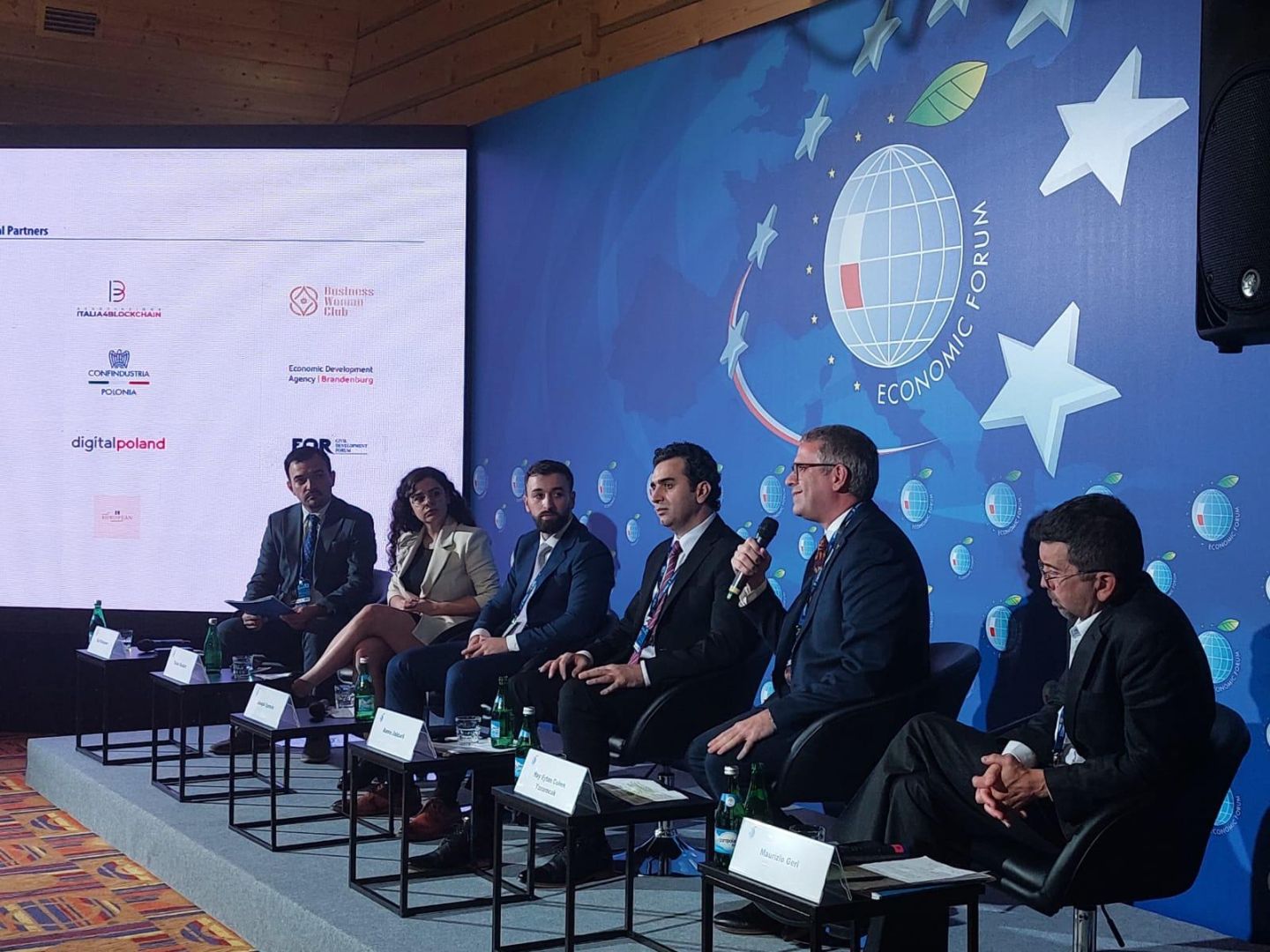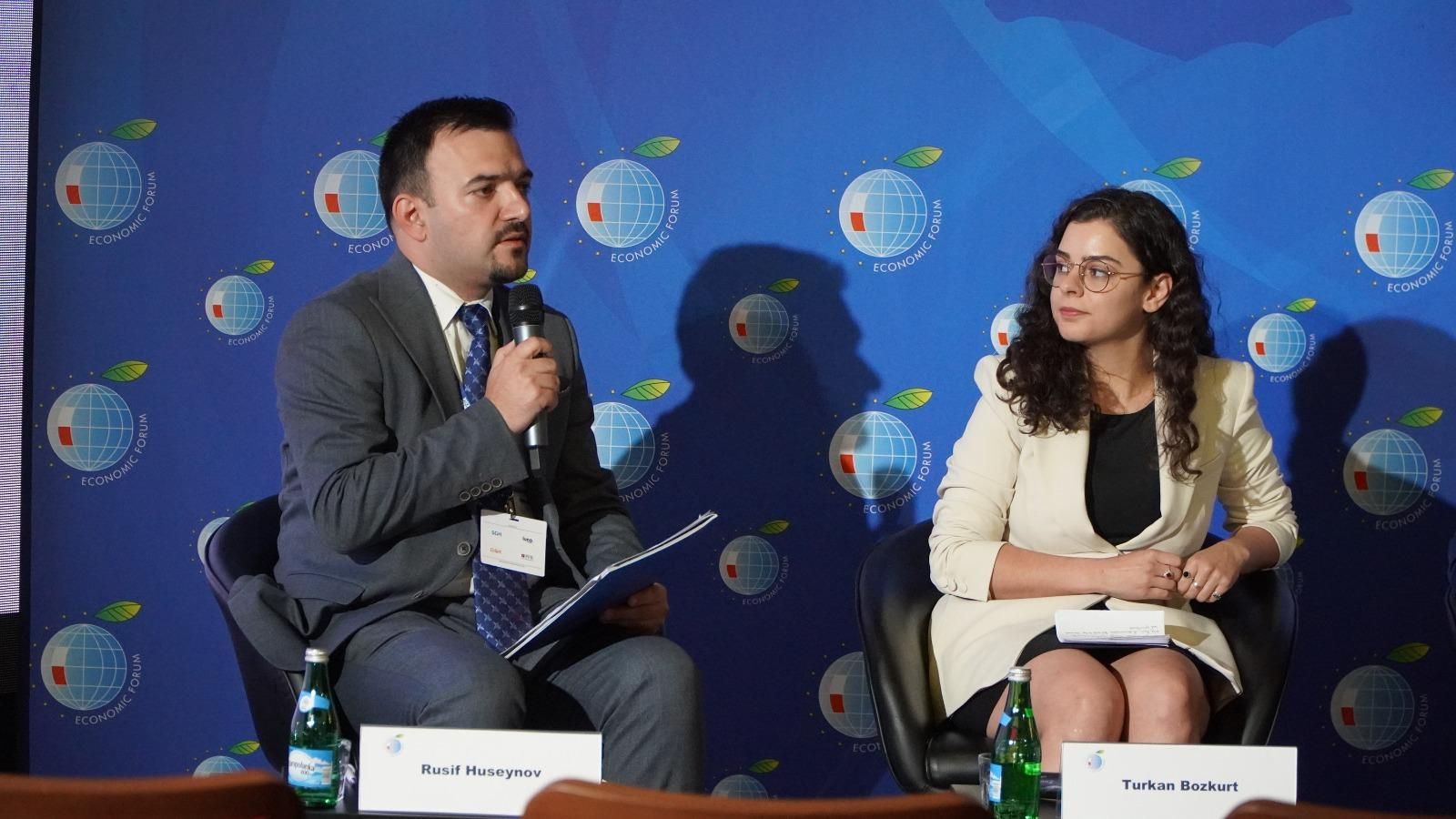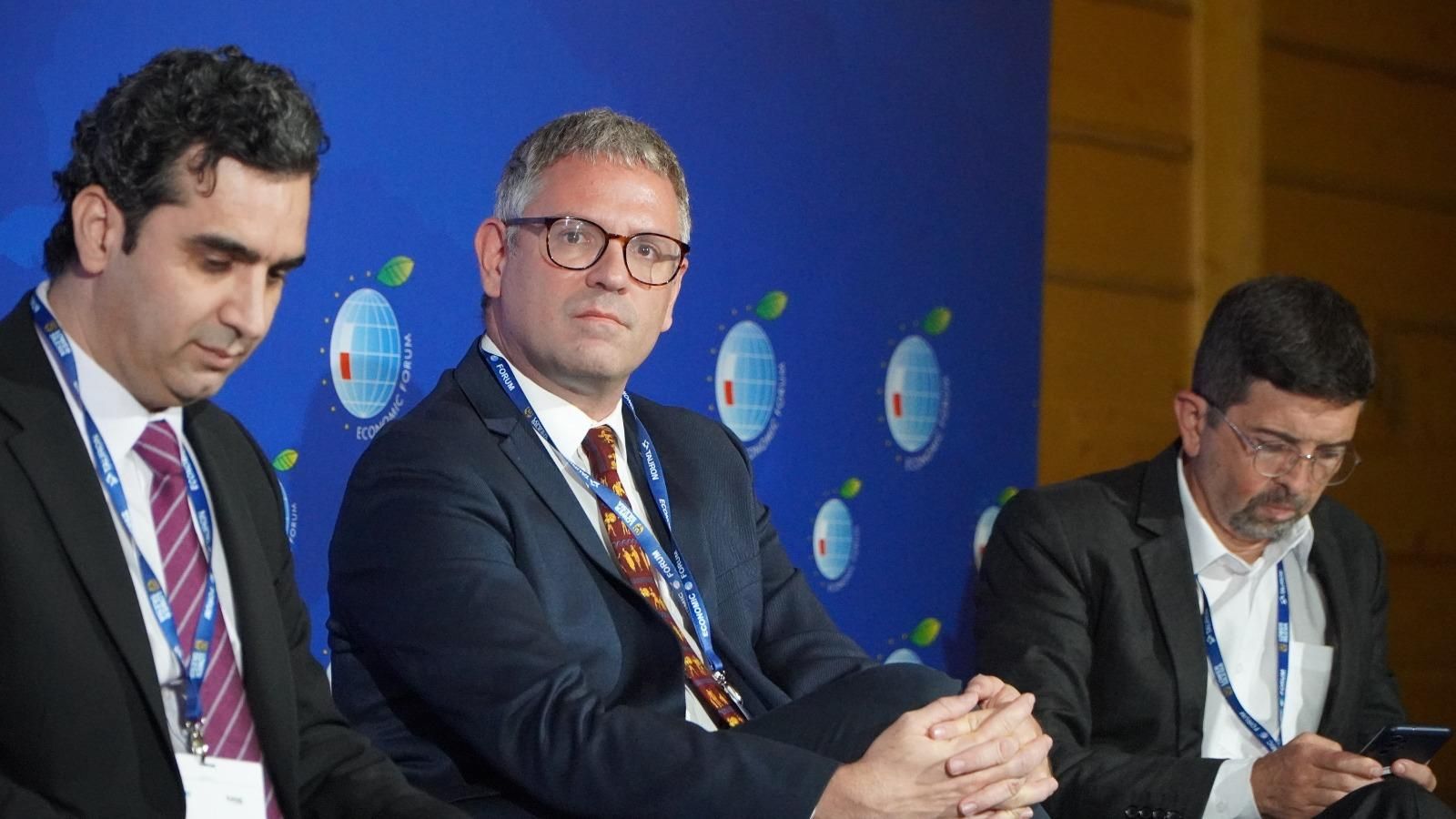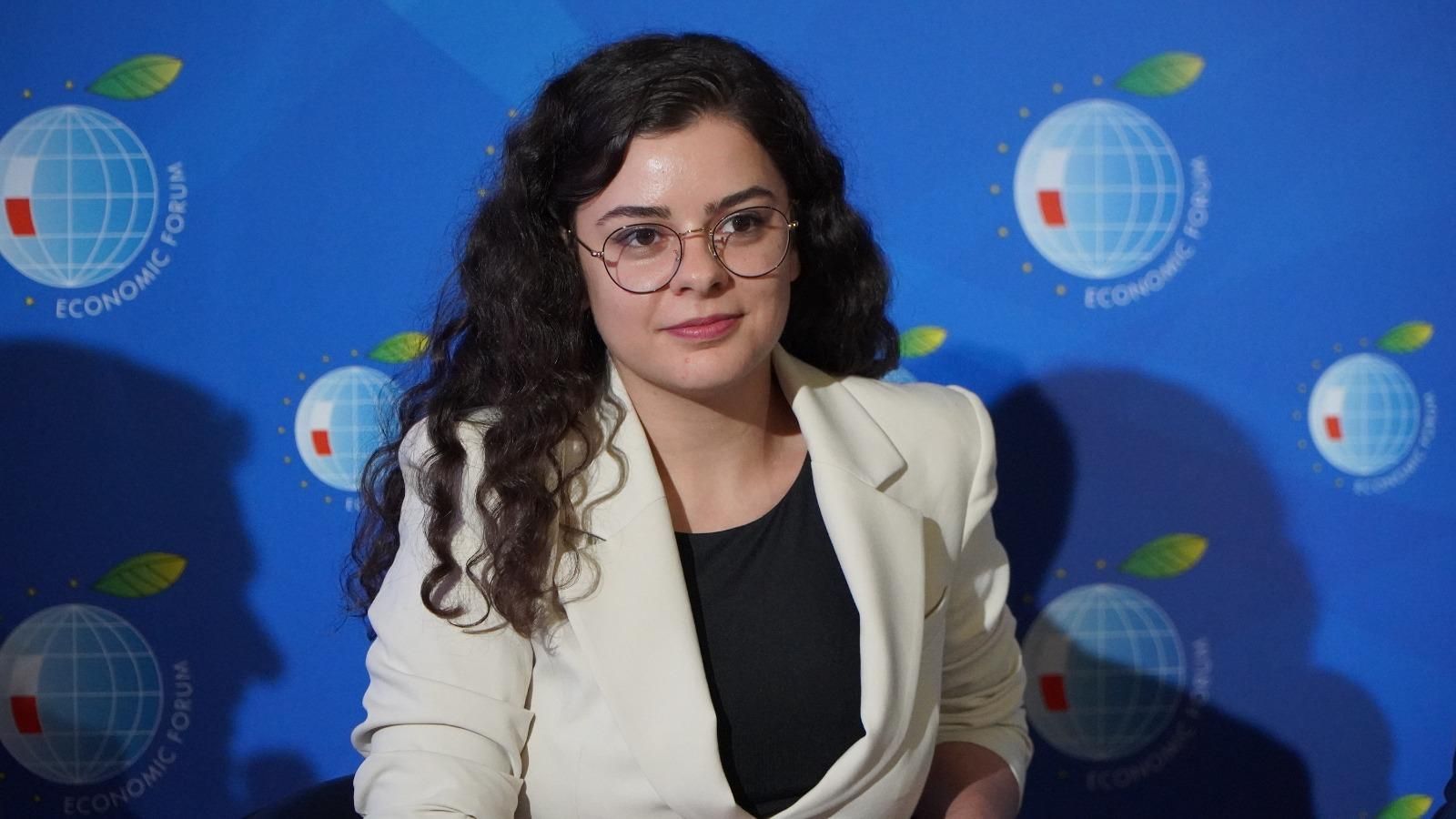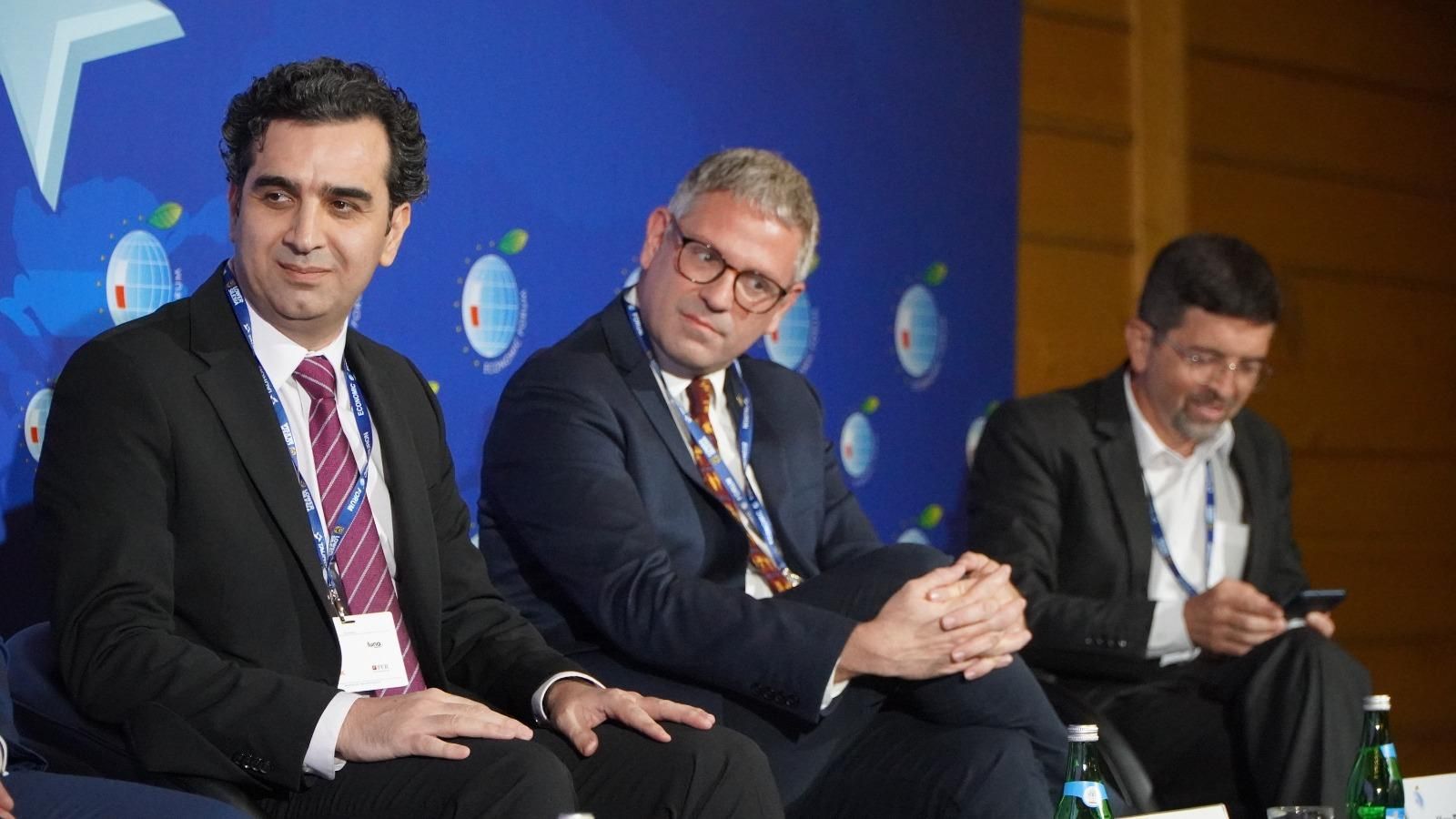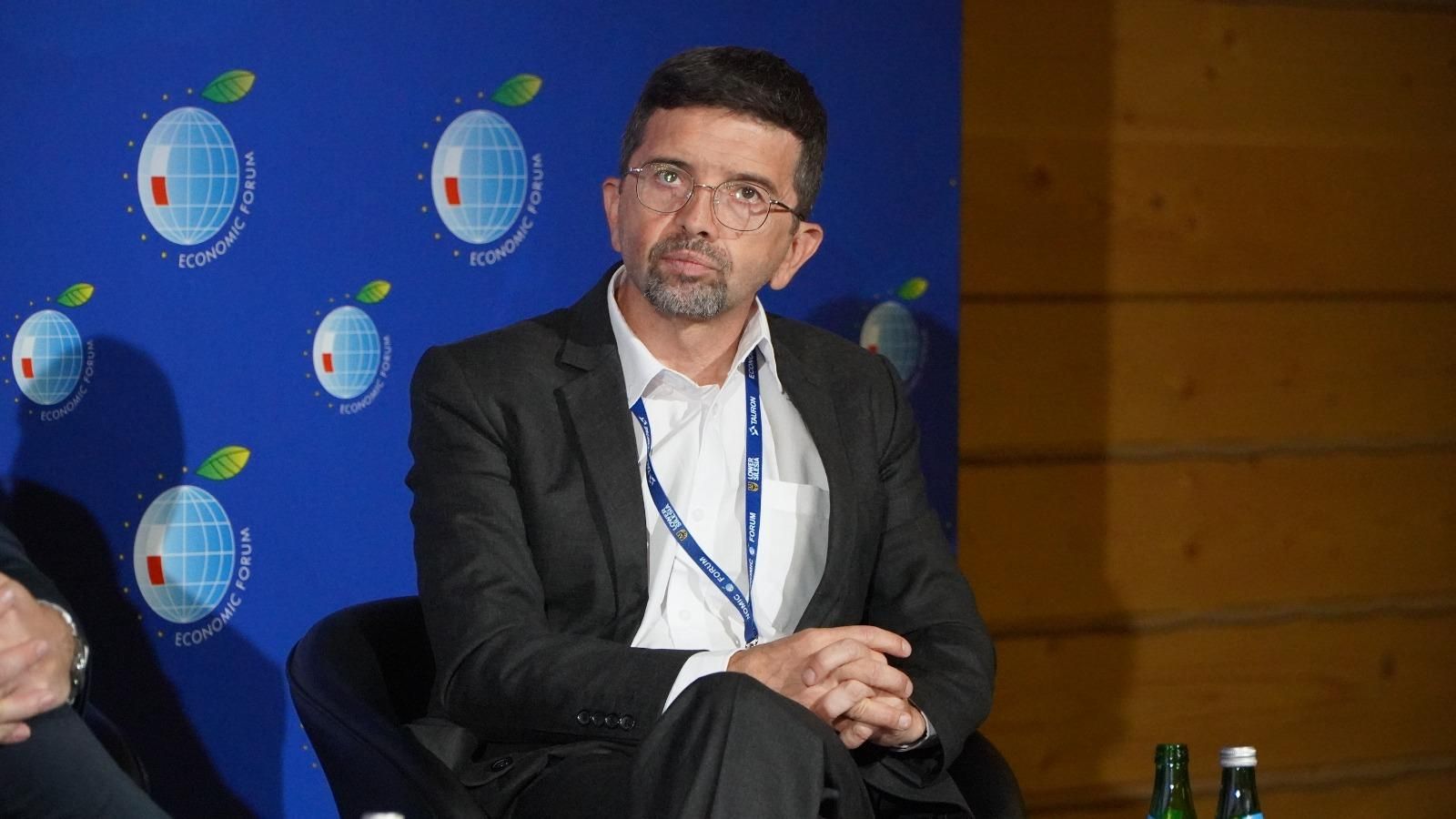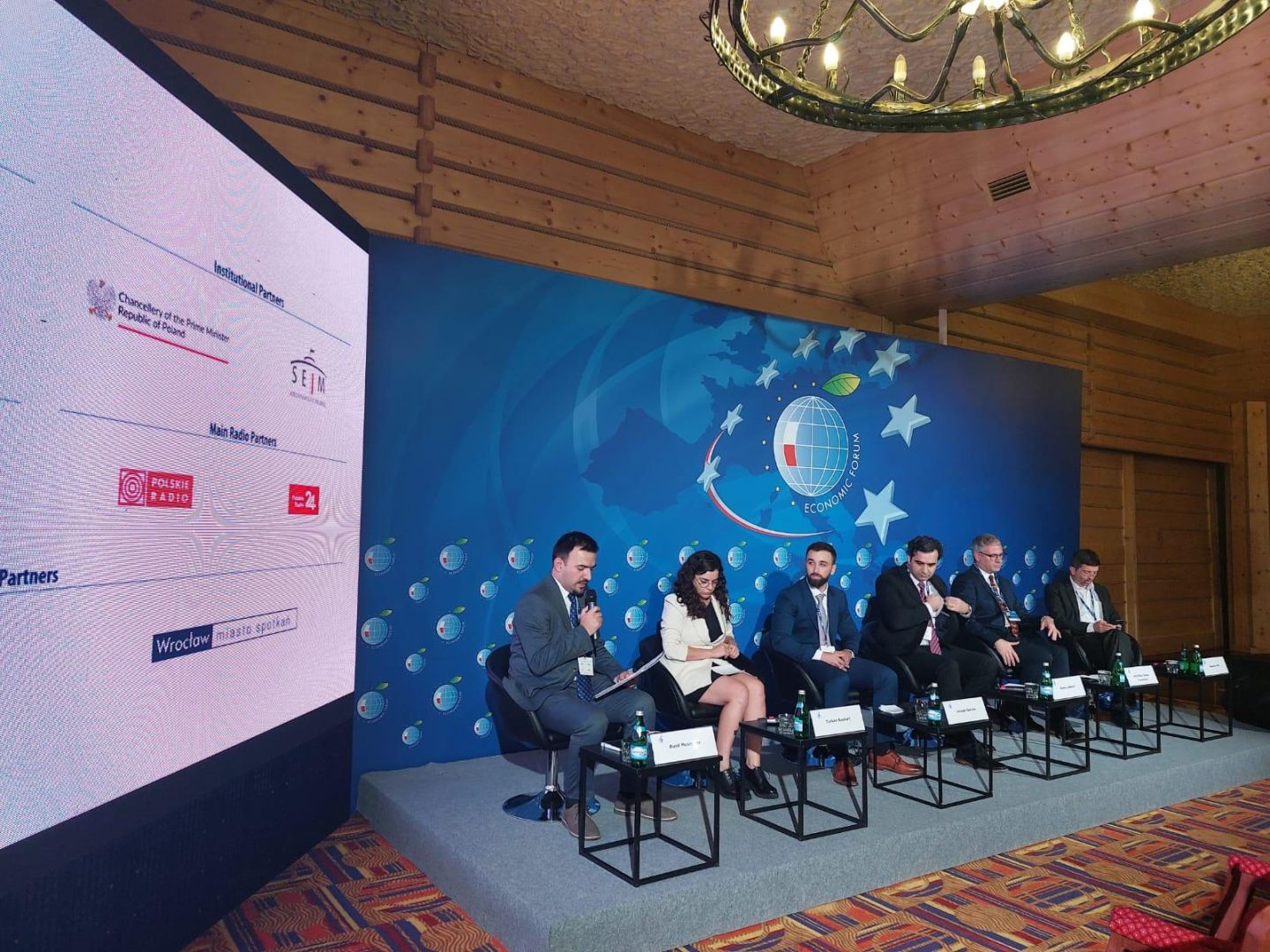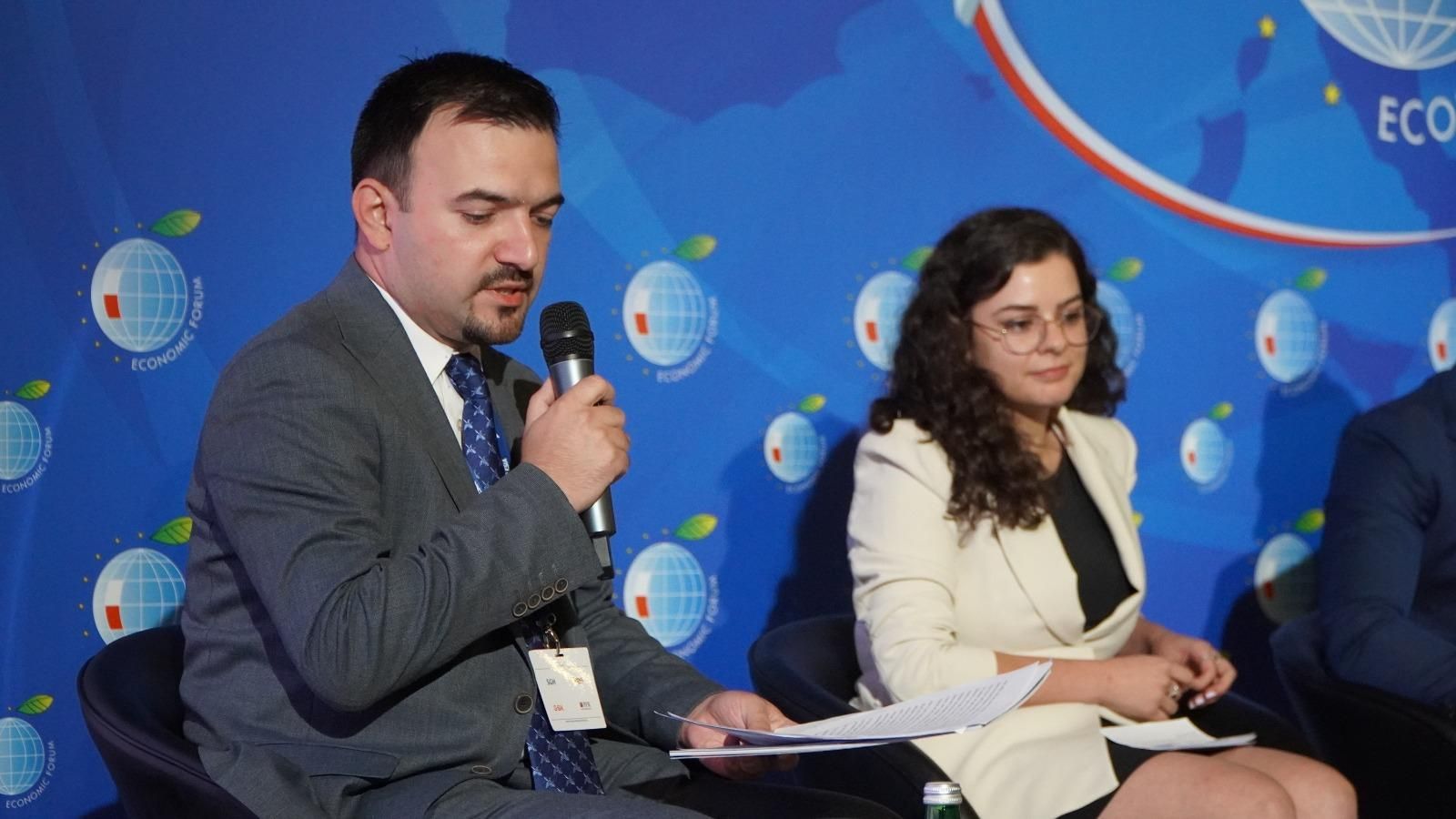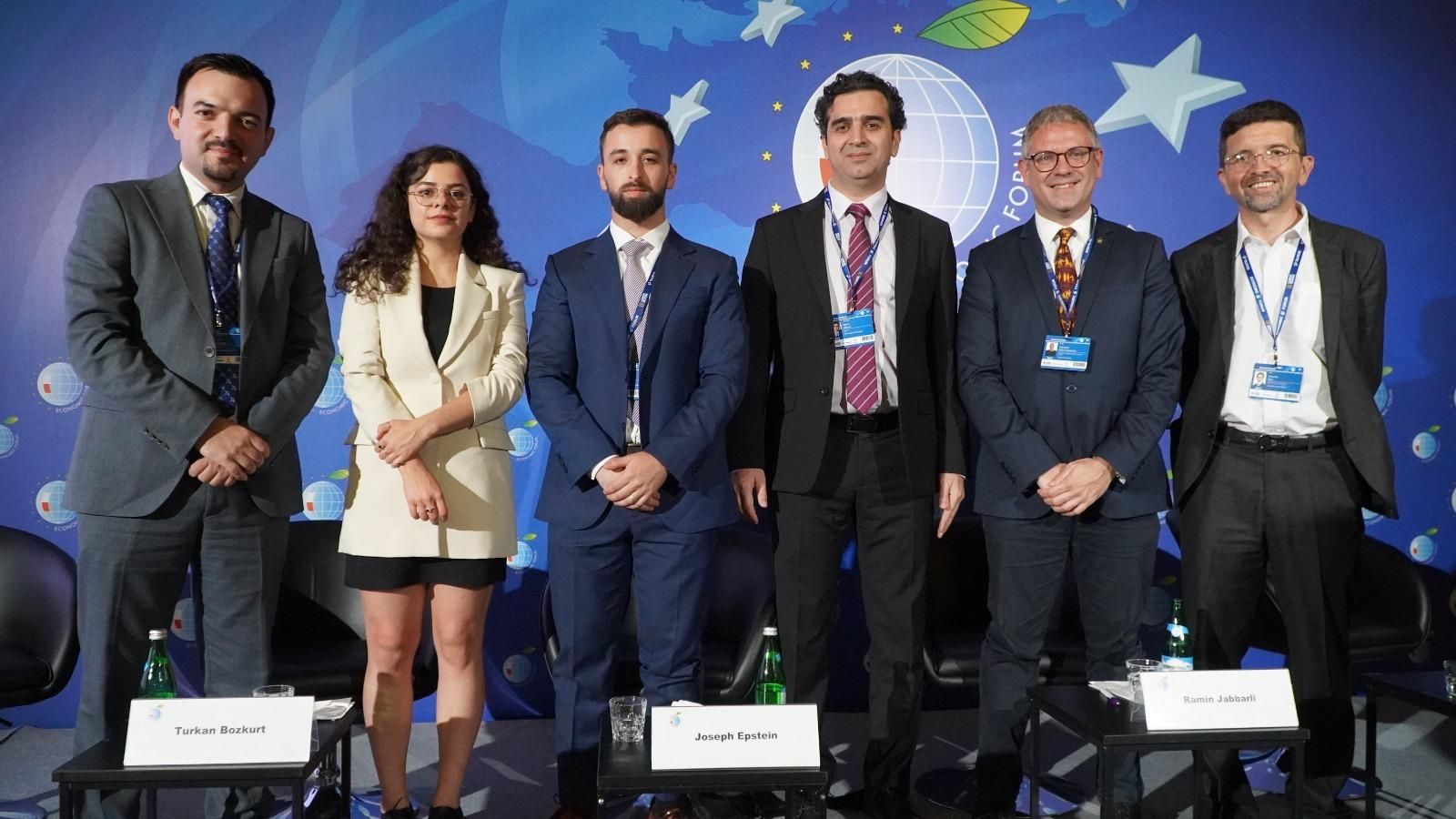Human rights & case of ethnic Azerbaijanis in Iran discussed at Economic Forum [PHOTOS]
![Human rights & case of ethnic Azerbaijanis in Iran discussed at Economic Forum [PHOTOS]](https://www.azernews.az/media/2023/09/11/5aa3f108-1c1f-3dc9-989e-664466d66969_850.jpg)
On 7 September 2023, Topchubashov Center hosted a panel at the 32nd Economic Forum in Karpacz, Poland, Azernews reports, citing the Forum.
The panel entitled "Human Rights Situation in Iran: The Case of Ethnic Azerbaijanis" gathered several experts from all over the world.
In his opening speech, Director of Topchubashov Center Rusif Huseynov, who was moderating the event, explained that the discrimination against Azerbaijanis in Iran is usually an understudied and under-discussed topic, despite their size as the biggest ethnic minority (15-30 million people, according to different estimates) and this panel was to pave way for more discussion in this direction.
In his turn, Ramin Jabbarli, a researcher at the University of Washington (Seattle, United States), explained how the discriminatory attitude of different governments in Iran toward the South Azerbaijanis had been conducted over the decades: the Persianization policy, change of toponyms, lack of education in mother tongue, and economic discrimination.
Turkan Bozkurt, a researcher at the University of Toronto (Canada), focused on the gender aspects of ethnic group rights in Iran, whose theocracy is known for “gender apartheid” and “misogynistic politics”. In this context, ethnic Azerbaijani women in Iran not only face discrimination based on their gender but also their ethnicity. Ms. Bozkurt referred to her human rights reports, which collected extensive data on the females arrested, tortured, and murdered during the months-long Mahsa Amini protests and mentioned influential Azerbaijani women such as Hadis Najafi and Elnaz Rekabi, who had become the icons of those protests.
Joseph Epstein, Legislative Fellow, Endowment for Middle East Truth (EMET) (Washington, DC, United States) who had lately penned a Newsweek article about the gradual disappearance of Lake Urmia, once one of the biggest saltwater lakes, explained why this ecological catastrophe was important to discuss. According to him, the situation around the aforementioned water basin is not only an environmental issue but it might have bigger implications: political, economic, and demographic. If the water level in the lake, which is located in an Azerbaijani-populated province, continues to shrink at this pace, it may cause the second-biggest displacement of population in history.
While discussing the lack of interest in the South Azerbaijan cause in the United States, Mr. Epstein suggested the Azerbaijani diaspora become more organized to be able to influence American political circles.
The last panelist Dr. Hay Eytan Cohen Yanarocak, a researcher at Moshe Dayan Center for Middle Eastern and African Studies at Tel Aviv University (Tel-Aviv, Israel) focused more on the geopolitical weight of the South Azerbaijan issue in the Middle Eastern and Caucasus context. According to him, this topic is among the factors that shape Tehran's foreign policy in the direct neighborhood, including an assertive and sometimes unfriendly attitude toward its northern neighbor Republic of Azerbaijan, as well as its geopolitical alignments, such as the partnership with Armenia, again built against Azerbaijan.
The panel concluded with a discussion of the lack of interest in the South Azerbaijan cause in the United States, and how the Azerbaijani diaspora could become more organized to be able to influence American political circles.
The 32nd Economic Forum, held in Karpacz, Poland, is a traditional forum for thousands of experts. This year's theme is ‘New Values for the Old Continent – Europe on the Threshold of Change‘. The region of Lower Silesia, where the forum is held, is located about 300 km from Warsaw, Berlin, or Prague and is perfectly connected. It is a land of diversity, with amazing mountains, mysterious undergrounds, the Piast Castles Trail, the Land of Extinct Volcanoes, Milicz Ponds, and the Lower Silesian Beer and Wine Trail.
The Economic Forum is also known for awarding prizes for the Man of the Year, the Company of the Year, and the Non-governmental Organization of the Year. Over the years, many prominent persons in European politics and economy have been honored with the title of the Economic Forum Man of the Year.
The panel at the 32nd Economic Forum in Karpacz provided an important platform for discussing the discrimination against Azerbaijanis in Iran and its impact on Iran's foreign policy. The panelists discussed the domestic ethnic tensions and the regime`s discriminatory policies against the ethnic groups, most of all the Azerbaijanis, amid the Mahsa Amini protests and Tehran's assertive foreign policy. The discussion also highlighted the need for the Azerbaijani diaspora to become more organized to be able to influence American political circles.
---
Follow us on Twitter @AzerNewsAz
Here we are to serve you with news right now. It does not cost much, but worth your attention.
Choose to support open, independent, quality journalism and subscribe on a monthly basis.
By subscribing to our online newspaper, you can have full digital access to all news, analysis, and much more.
You can also follow AzerNEWS on Twitter @AzerNewsAz or Facebook @AzerNewsNewspaper
Thank you!

